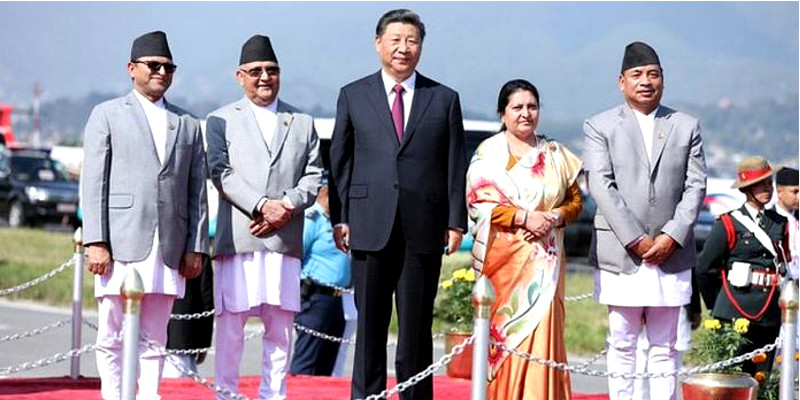A well known global strategy of China is gaining influence over the government of weaker nations by gathering corrupt officials. A recent study has shown that Nepal government official’s close ties to China is affecting their independence. While the Chinese strategy is effective for them, Nepal’s autonomy and ability to take independent decisions are at stake.
The Global Watch Analysis article explains that China’s policy of corrupting the political class of a country, especially those who are not economically strong. It specifically gives details how the foreign policy of Nepal, the latest entrant to fall victim to China’s strategic expansionism, is now pushing for the interests of Beijing.
A worrying and trend noticed in Nepal is the deteriorating human rights condition of Tibetan refugees residing in Nepal. The Himalayan nation shares a long border with Tibet and is home to over 20,000 Tibetan exiles, many of whom coming into the country after the Dalai Lama took refuge in India in 1959.
In a recent report submitted to the UN, two human rights groups, Washington-based International Campaign for Tibet and the Paris-based International Federation for Human Rights, have observed that new arrivals from Tibet to Nepal often face the threat of deportation to China.
Further, with growing links between the Nepalese government and China, Tibetan refugees are now prevented from holding elections for electing members of their refugee associations or celebrate the birthday of the Dalai Lama. Any attempts to protest against Chinese persecution are also met with a heavy-handed response by Nepalese authorities, added the author.
In order to ensure that Nepal’s top echelons carry out China’s bidding, the Chinese Embassy in Kathmandu has been slowly but steadily building a network of loyalists. Doles are given out to them, often on the pretext of legitimate jobs undertaken for the embassy.
For instance, the Embassy of China in Kathmandu gave a contract of Nepali Rupees 1.5 million (approximately Euro 10500) to Rajan Bhattarai , a member of the ruling NCP and later gets appointed to Prime Minister Oli’s Foreign Affairs Adviser, for a research paper on Nepal–India relations, explained the author noting that the payment for the task was made to personal bank account of Bhattarai.
With Nepal’s Prime Minister’s office, including its senior advisers, known to have established a transactional relationship with China, it raises serious doubts about the autonomy of the government and its ability to take independent decisions, concluded the journal.







Leave a Reply